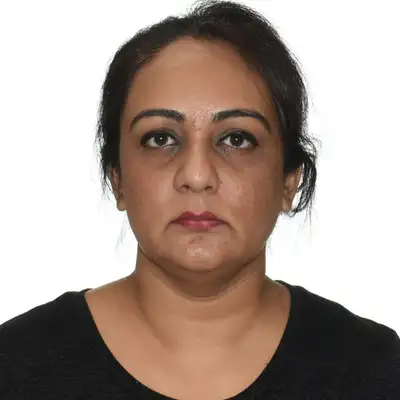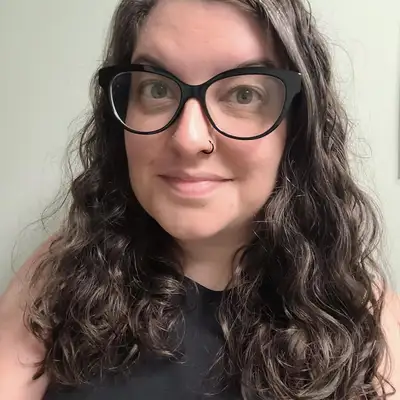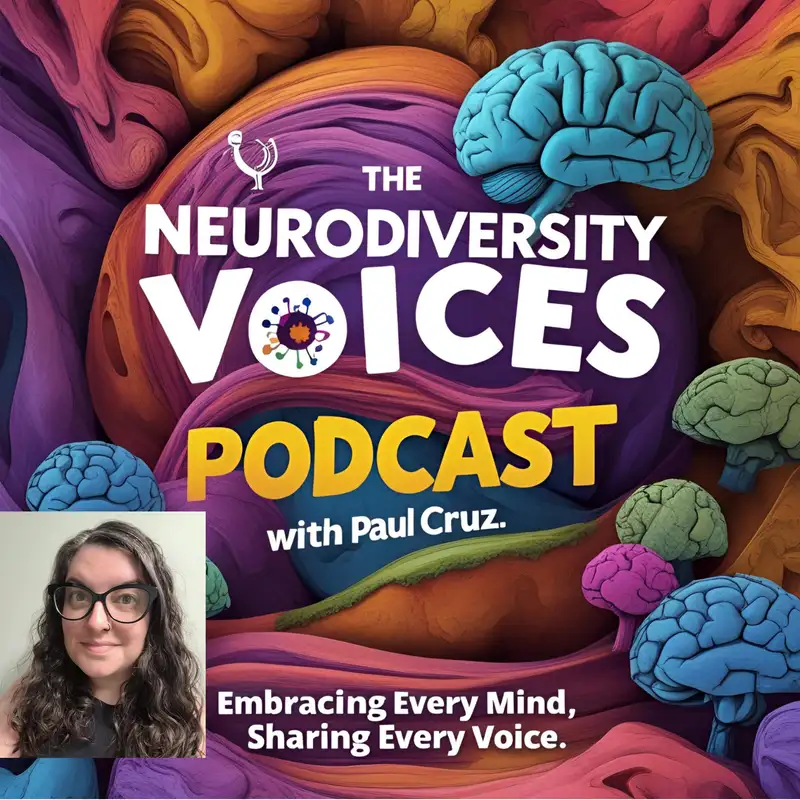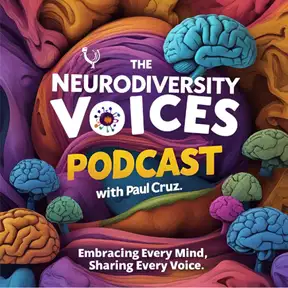Diagnosed Late, Advocating Loud: Education Reform with Becky Bishop
Download MP3Becky Bishop’s late diagnosis fuels powerful advocacy for neurodiversity and inclusive education.
Becky Bishop shares her inspiring journey from studying human geography to becoming a passionate advocate for inclusive education and neurodiversity. Diagnosed with ADHD later in life, Becky reflects on the validation and clarity this brought, alongside the grief of missed opportunities.
Becky Bishop shares her inspiring journey from studying human geography to becoming a passionate advocate for inclusive education and neurodiversity. Diagnosed with ADHD later in life, Becky reflects on the validation and clarity this brought, alongside the grief of missed opportunities.
Our conversation highlights the importance of community support for neurodivergent individuals, featuring success stories from organizations like LDS that affirm identity and reduce isolation. Becky discusses the systemic barriers neurodivergent learners face, especially the unique challenges women with ADHD encounter due to underdiagnosis and gender bias.
She stresses that education is an equity issue, and personalized, neurodiversity-affirming approaches can lead to breakthroughs. The episode explores the intersection of neurodiversity and mental health, emphasizing the need to shift perspectives away from deficit-based views toward celebrating cognitive differences.
Becky closes with a call to action for greater inclusivity, early skill development, accommodations, and systemic change in both educational and professional settings to dismantle stigma and empower neurodivergent individuals.
Connect With Becky Bishop
LinkedIn: https://www.linkedin.com/in/becky-bishop-31858a283/
Learn, Develop, Succeed (LDS)
Website: https://ldsociety.ca/
Connect With Us
- Learn more about the Neurodiversity Voices Podcast: www.neurodiversityvoices.com
Creating space for neurodivergent voices is more important than ever. With your help, we can ensure these stories are heard loud and clear. I'm raising funds to improve the audio quality of The Neurodiversity Voices Podcast and expand our reach. Every dollar counts! If you believe in celebrating these unique perspectives, please like, comment on, and share this post. Let’s spread the word and keep the conversation going!
Your support means the world.
Chapters
00:00 Introduction to Neurodiversity Voices Podcast
01:11 Becky's Journey: From Geography to Advocacy
05:01 The Impact of Late ADHD Diagnosis
07:56 Community and Support at LDS
09:31 Success Stories in Inclusive Education
12:12 Collaborations for Inclusive Education
12:50 Future Goals for LDS
14:05 Addressing Executive Functioning in Education
16:04 Challenges Faced by Neurodivergent Individuals
18:16 ADHD in Women: Underdiagnosis and Misdiagnosis
20:51 Misconceptions About Neurodiversity
22:10 Systemic Biases in Education
24:02 Intersection of Neurodiversity and Mental Health
26:56 The Importance of Community and Support
29:28 Conclusion and Call to Action
Disclaimer:
The content provided in this podcast is not intended to be a substitute for professional medical advice, diagnosis, or treatment. Always seek the advice of your physician or other qualified health provider with any questions you may have regarding a medical condition. Never disregard professional medical advice or delay seeking it because of something you have heard on this podcast.
Creators and Guests

Host
Tayaba Khan
Dr Tayaba Khan is a dental surgeon, a medical editor, a coach & trainer, and a health management and communications professional. She has over 20 years of experience in clinical dentistry, management, healthcare communications, training and teaching, and ethics pertaining to advanced healthcare aspects such as stem cell research and patient involvement in healthcare. Dr Khan has extensive experience in liaising with researchers and industry, managing university partnerships, developing health IT companies, contributing as a patient advisor, training medical postgraduates, and conducting project management for startups. She coordinated and executed the annual Aga Khan University International Ethics Thinking Group meetings in 2018 (London) and 2019 (Lisbon), actively contributing towards discussions on stem cell research and future human ethics perspectives with world renowned leaders, theologians, scientists, and lawyers. Dr Khan is currently a faculty at Bow Valley College, Calgary Alberta. Prior to this, Dr Khan supported Alberta Health Services as a credentialed EPIC trainer for the launch of ConnectCare, providing training for OPTIME modules, and contributed during the Calgary launch phase of this historical provincial healthcare change. She is currently a Board Member for Imagine Citizens Network; Member at International Advisory Committee of Strategic Patient-Oriented Research Evidence Alliance (SPOREA); and a Member of the Patient Advisors Network (PAN), Canada. In her various roles and capacities, she demonstrated skills in coaching and training, medical writing, editing, and healthcare communications, public engagement, mentoring, and grant development. Dr Khan is passionate about patient advocacy and creating solutions bridging information gaps between various stakeholders in the healthcare industry, with patients at the heart.

Guest
Becky Bishop
She is a neurodivergent, passionate, and holistic educator with an eclectic background dedicated to fostering inclusive learning environments.

